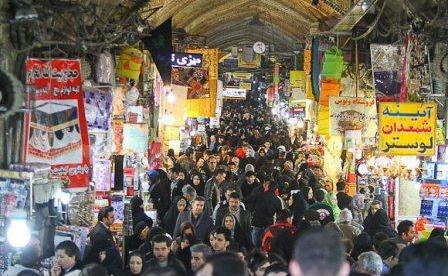Tuesday 23 December 2014 - 00:18
Story Code : 8045
EU-US sanctions targeting ordinary Iranian citizens
The pile of sanctions against Iran has been rapidly growing over the past few years; The United Nations Security Council (UNSC) has imposed four rounds of sanctions against Iran, with EU and US each slapping various unilateral sanctions against the country, targeting the Islamic Republic�s banking and energy sectors as well as its industries and shipping lines. Although Iran has been the target of sanctions for more than two decades, but the latest sanctions are the toughest measures taken by the EU so far.
The latest�EU measures�are likely to ramp up pressure on Iran's economy.�The value of the national currency, the rial, plummeted 40 percent in early October, and inflation stands officially at nearly 24 percent. Experts say the real figure could be double that or more.
Iran�s currency crisis has also affected the domestic automotive market as car prices are rising because of the fluctuating exchange rate.�This is while car loans of Iran�s largest automaker,Iran Khodro, have not change despite the hike in prices, making it harder for Iranians to purchase new automobiles.
Above all, millions of lives are at risk in Iran because western economic sanctions are hitting the importing of medicines and hospital equipment. Recently, Head of Iran�s Charity Foundation for Special Diseases warned the UN about the impact of sanctions on the Iranian patients suffering from refractory diseases as they have stopped the flow of medicines that are not produced in the country as well as their ingredients, leading to the scarcity of certain medical items and threatening a number of Iranian pharmaceutical factories with imminent closure.
In July, the Iranian Hemophilia Society said sanctions imposed against the Islamic Republic by the US and the EU are endangering the lives of the country�s hemophiliacs as blocking money wiring routes have caused serious problems for purchasing medicines.
This is while Iran�s Majlis has agreed with increasing the price of airplane tickets up to 50 percent in case Iranian airlines do not receive budget from the government. A move that will further complicate life for ordinary Iranian people.
Also, Iran's central bank, the only official channel for Iranians to transfer money abroad, is a major target of the sanctions. Ordinary Iranians, including academics therefore have no way of paying for services overseas, such as booking a hotel or subscribing to international journals.
The sanctions were imposed based on the allegation that Iran is pursuing non-civilian objectives in its nuclear energy program. Iran, however, rejects the allegations, arguing that as a signatory to Non-Proliferation Treaty and a member of International Atomic Energy Agency, it has the right to use nuclear technology for peaceful purposes.
# Tags











